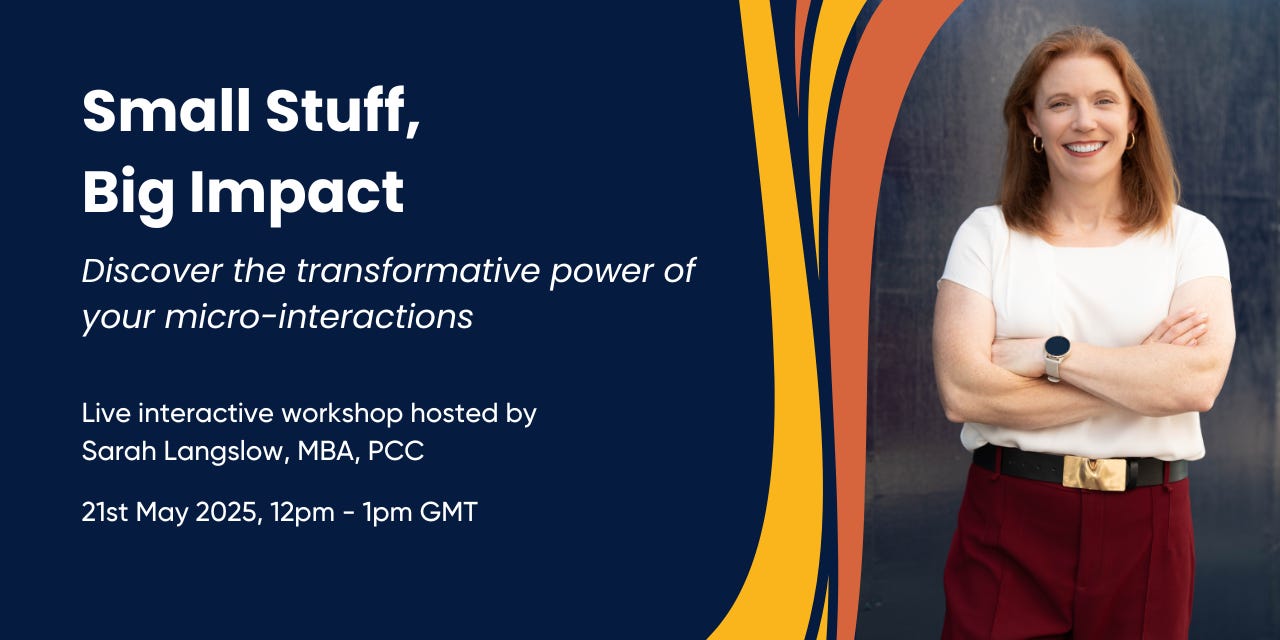The validation trap
Why relying on external validation can land us in trouble, and what to do instead
“Well done!”
“That was great work.”
“Thanks, it made such a difference having you there.”
If even reading those words gives you a warm feeling inside, you’re not alone; most of us like to receive praise. Receiving validation from others that we’re doing a great job, or that we did something well, feels good.
Beyond that, it’s normal to care what others think of us and how we behave – being aware of and considering how we come across to others is part of being a kind, considerate human. Yet it’s easy for that desire to be perceived positively to turn into a pattern of constantly trying to please others. When that validation becomes something we need, something that drives how we behave, or worse, something that determines how we feel about ourselves things can get sticky.

Why the desire for external validation?
Beyond the fact that it feels good, why do we look for external validation? First, it gives us recognition and confirmation that we matter. It counters the fear that we may be irrelevant, or worse, that our presence is actively unhelpful. It also provides reassurance that we belong, that we are “in” the group – whatever group that might be – which makes us feel safe.
We are also naturally afraid of the alternative. When we don’t receive validation, does that mean we are being silently judged? Are others thinking negatively of us? And might that lead us to be ostracised or excluded from the group?
Validation is also increasingly built into our online life, reinforcing the need for it and that receiving it is a “good” thing. On social media, our numbers of followers and the likes and comments and shares they make are like candy for the part of our brain that craves approval and reassurance.
There’s nothing inherently wrong with seeking validation, it’s a healthy check and balance to our own perspective. But when our need for it becomes insatiable, or our reliance on it becomes too strong, that’s where things start to go wrong.
When a need for validation goes too far
An over-reliance on external validation can lead to a number of unhelpful behaviours, which impact both ourselves and others.
The most commonly seen is people-pleasing. People-pleasers try to do whatever it takes to keep other people happy, prioritising others' needs and wants over their own, often at the cost of their own well-being.
A variation on people-pleasing is what I call chameleon behaviour, where we are constantly shifting and changing how we behave in an effort to be the person we think the person we are with, wants. Part of the issue with this is that what we think the other person wants (a) is all guesswork and (b) takes a lot of mental and emotional effort to try and figure out. Combined with our own constant checking and adjusting, living in this state can be exhausting.
When we over-rely on validation from others we tend to avoid expressing our own needs and wants, discounting them in favour of what those around us need and want. Over time we may even lose perspective on what our own needs are, as we routinely push them to the back of our mind and ignore them.
All of these behaviours can be frustrating to others, whether because they have a genuine desire to include our needs and wants in the conversation, or because they also find the shapeshifting tiring. While we may think we are doing a good job of hiding it, those around us can usually smell the inauthenticity, or at least that something odd is going on.
For us, we can end up basing our self-worth and self-esteem on what others think. This is unreliable and can be volatile where it is connected to someone else’s mood rather than having any factual or logical basis. This leaves us vulnerable to emotional burnout and dissatisfaction in our own personal life.
Worst of all we can end up in a trap where we rely on external validation but then don’t trust or believe in positive affirmation when we receive it. That really is a no win situation.
Getting in the way of our leadership
Relying too much on external validation also gets in the way of effective leadership. It can make us:
Hesitant to make decisions, as we fear others disagreeing with or judging them;
Reluctant to give clear, direct feedback in case someone takes it badly or disagrees;
Endlessly seek consensus, slowing everything down and causing us to give airtime to points of view that are never going to be taken forward (to be clear this isn’t always bad, only if too much or too often);
Inconsistent in our approach, as we chop and change to try to keep others happy;
Slow to speak up, and over-cautious in expressing opinions for fear of others judgement.
Above all, this all leads us to spend excessive time and energy worrying about what others think, or trying to figure our what they think, and constantly checking in to get reassurance. Much of which achieves little other than to exhaust us and erode trust and connection with everyone else.
Resetting the balance
When we start talking about letting go of the need for external validation, there’s a common fear that it means things have to swing to the other extreme – to not care about what anyone else thinks. That isn’t the case. Instead it’s about resetting the balance of where we source our validation to more of an equilibrium.
Here are a few suggestions as to how you might to start let go of your own need for external validation, or your people-pleasing tendencies:
One, reintroduce your own perspective on your own decisions and performance, and your own needs and wants. This isn’t about your perspective replacing other peoples', simply acknowledging that yours exists and is equally worthy of consideration. Remind yourself that your opinion matters. Practise voicing your needs, as they usually have to be shared out loud for them to be considered.
Two, challenge yourself on what you are choosing to care about. Does this person’s perspective really matter in this situation? Is there view really more valid than your own? Why are you choosing to value their needs and wants above yours? Can you trust your own perspective in this case rather than needing someone else’s?
Three, try the “So what?” test. If you find yourself hesitating over fear of what others might think, ask:
So what if this decision isn’t universally popular?
So what if they have a different opinion?
So what if I have to make a change later?
Four, as a variation on this, ask yourself: “What's the worst that could happen?” and if it did, “would I be OK?”. This can help bring perspective on the situation and make us realise that even if someone disagrees or criticises, it’s not the end of the world. Take care with this one if you’re a natural doom monger, and don’t dwell too long on potential bad outcomes.
And five, practise separating anyone else’s opinions from your own inherent worth as a human. Someone not liking you or something you’ve done doesn’t make you a bad person. Someone disagreeing with you or criticising you isn’t a terminal judgement on your opinion or your skills. The more we can build a solid foundation by acknowledging our own strengths and trusting our own judgement, the less vulnerable we are to the impact of judgement from others, and the less dependent we are on constant validation.
It might take some time and practice to shift your habits, but it’s worth doing. And if you’re wondering whether I’ve got this all figured out? Well, let’s just say this little jar lives on my desk as a reminder to save my f**** for the things that matter, because I only have a finite amount to give.
If you’re interested to explore further, this article: Overcoming Your Need for Constant Validation at Work by Melody Wilding, published in HBR, has some more great suggestions.
Are you someone who relies too much on external validation? What are you willing to practise to shift the balance? Hit reply or leave a comment via the button below and let me know.
Meme of the week
On a somewhat related note, this one landed this week and made me laugh just as much as the OP 😂
Join me for the next Small Stuff, Big Impact workshop
The next Small Stuff Big Impact Workshop will be on 21st May at 12pm BST. I’d love for you to join me, and share this with any of your friends and colleagues who might be interested in attending.
Unlock the hidden power of small, everyday interactions with "Small Stuff, Big Impact: Discover the transformative power of micro-interactions" – this live, online (and complimentary) workshop will introduce you to the world of micro-interactions – those small, seemingly inconsequential moments that have a profound impact on your team’s engagement and performance. If you’re leading or managing others, mastering these moments is essential to building stronger relationships and creating a more motivated, connected team.
In this 60-minute introductory workshop, you will:
🌟 Learn what micro-interactions are and why they matter in leadership.
🌟 Discover how small adjustments in communication, tone, and behaviour can create a ripple effect, transforming your daily interactions into powerful tools for engagement.
🌟 Learn how to translate theory into action – you will leave with practical suggestions to start making subtle but effective changes right away.
Register for your place via this link, and please do share with anyone you know who might like to join.
Places are limited to ensure a truly interactive discussion, so sign up now to avoid missing out.
See you there!
Thanks for reading, and I’ll see you next week!
If you know someone who you think would enjoy this, use this button to share it with them directly. Thank you!






